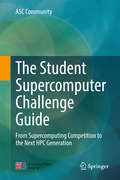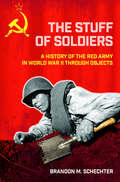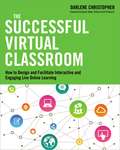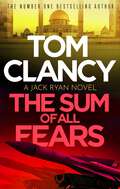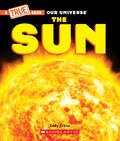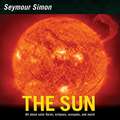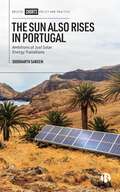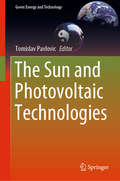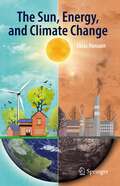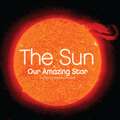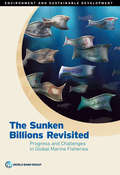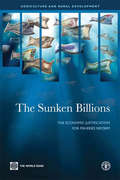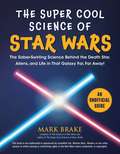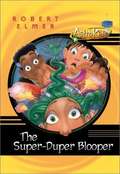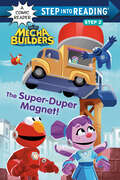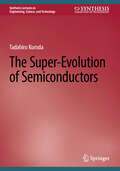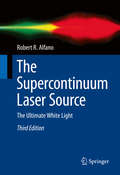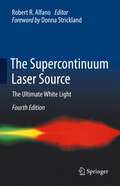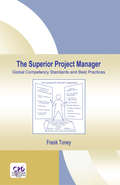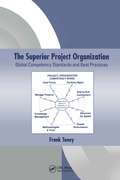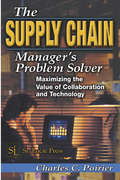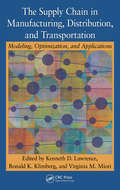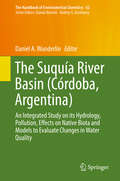- Table View
- List View
The Student Supercomputer Challenge Guide
by Asc CommunityThis guide provides a comprehensive overview of High Performance Computing (HPC) to equip students with a full skill set including cluster setup, network selection, and a background of supercomputing competitions. It covers the system, architecture, evaluating approaches, and other practical supercomputing techniques. As the world’s largest supercomputing hackathon, the ASC Student Supercomputer Challenge has attracted a growing number of new talent to supercomputing and has greatly promoted communications in the global HPC community. Enclosed in this book, readers will also find how to analyze and optimize supercomputing systems and applications in real science and engineering cases.
The Stuff of Soldiers: A History of the Red Army in World War II through Objects (Battlegrounds: Cornell Studies in Military History)
by Brandon M. SchechterThe Stuff of Soldiers uses everyday objects to tell the story of the Great Patriotic War as never before. Brandon Schechter attends to a diverse array of things—from spoons to tanks—to show how a wide array of citizens became soldiers, and how the provisioning of material goods separated soldiers from civilians.Through a fascinating examination of leaflets, proclamations, newspapers, manuals, letters to and from the front, diaries, and interviews, The Stuff of Soldiers reveals how the use of everyday items made it possible to wage war. The dazzling range of documents showcases ethnic diversity, women's particular problems at the front, and vivid descriptions of violence and looting.Each chapter features a series of related objects: weapons, uniforms, rations, and even the knick-knacks in a soldier's rucksack. These objects narrate the experience of people at war, illuminating the changes taking place in Soviet society over the course of the most destructive conflict in recorded history. Schechter argues that spoons, shovels, belts, and watches held as much meaning to the waging of war as guns and tanks. In The Stuff of Soldiers, he describes the transformative potential of material things to create a modern culture, citizen, and soldier during World War II.
The Successful Virtual Classroom: How to Design and Facilitate Interactive and Engaging Live Online Learning
by Darlene Christopher Karen HYDERDesigners and facilitators must adapt their programs and delivery styles to be effective in the new medium that is virtual training.Virtual training gives learning professionals unprecedented flexibility, making it possible to reach participants globally and unite physically dispersed teams. This book goes beyond introducing the technology, to offer trainers proven techniques tailored specifically to engage live online audiences. In Successful Virtual Classroom, you will learn how to: Make the most of virtual classroom features such as content and screen sharing, annotation tools, polls, and breakout rooms Weave chat responses into the discussion Compensate for the absence of body language Monitor feedback Engage individuals with different learning styles Encourage audience contribution Meet the unique needs of global participants Packed with easy-to-use tools, checklists, and worksheets--as well as case studies from?Oracle,?UPS, and more--the book introduces the PREP model for planning, rehearsing, executing, and then conducting a postmortem following the training event.Featuring icebreakers and interactive exercises designed for an online environment, Successful Virtual Classroom helps you create programs that truly drive learner engagement.
The Sugar Plantation in India and Indonesia
by Ulbe BosmaEuropean markets almost exclusively relied on Caribbean sugar produced by slave labor until abolitionist campaigns began around 1800. Thereafter, importing Asian sugar and transferring plantation production to Asia became a serious option for the Western world. In this book, Ulbe Bosma details how the British and Dutch introduced the sugar plantation model in Asia and refashioned it over time. Although initial attempts by British planters in India failed, the Dutch colonial administration was far more successful in Java, where it introduced in 1830 a system of forced cultivation that tied local peasant production to industrial manufacturing. A century later, India adopted the Java model in combination with farmers' cooperatives rather than employing coercive measures. Cooperatives did not prevent industrial sugar production from exploiting small farmers and cane cutters, however, and Bosma finds that much of modern sugar production in Asia resembles the abuses of labor by the old plantation systems of the Caribbean.
The Suitcase Clone
by Robin SloanAt last, the story that definitively bridges the world of Sourdough to that of Mr. Penumbra’s 24-Hour Bookstore. It’s all one Penumbraverse.James Bascule is adrift. College beckons—but not quite strongly enough to actually get him to campus. A trip to Europe showed him a world bigger than his Northern California upbringing—and yet, one broken heart later, Northern California is where he’s returned. Back to his old bedroom, paying his bemused parents rent with his new hobby, baking bread with the sourdough starter that is his only souvenir of what was apparently just a summer fling.The future is being built an hour or two down the highway—it’s 1985; the twenty-first century is just around the corner!—but that’s not his world either. While sitting in a Sonoma County bar, indulging in a little aimless day drinking with a junior college acquaintance, he meets a man. A man with . . . something like a plan. Has James ever heard of a “suitcase clone”? It’s a cutting of a vine used to clone and propagate noteworthy grapes—say, from a legendary European vineyard to an upstart Napa Valley operation. This man has an operation. He has a suitcase. He just needs an enterprising young accomplice up for an adventure.Just how deliriously fun and thrillingly mind-expanding an adventure, James can’t yet know. But we, of course, know how Robin Sloan crafts a story. Crossing the international literary-techno-conspiracy of Mr. Penumbra with the delicious experimentation of Sourdough, The Suitcase Clone is a tale that enriches and expands the Penumbraverse in ways you never saw coming, told by a mysterious narrator with an unexpected perspective on the great puzzles of life. Who could it be?
The Sum of All Fears (Jack Ryan #5)
by Tom Clancy'A whiz-bang page-turner!' New York Times Book ReviewPeace may finally be at hand in the Middle East, as Jack Ryan, Deputy Director of Intelligence for the CIA, lays the groundwork for a plan that could end centuries of conflict. But ruthless terrorists have a final, desperate card to play: a nuclear weapon hidden somewhere in the United States.With one terrible act, distrust mounts, forces collide, and the floundering U.S. president seems unable to cope with the crisis. With the world on the verge of nuclear disaster, Ryan must frantically seek a solution - before the chiefs of state lose control of themselves and the world.
The Sun (A True Book: Our Universe)
by Cody CraneIt's bright and it's hot. It's the center of our solar system. It is our Sun. As readers journey through this book, they will discover how this amazing star came into existence, and they will learn everything about its size and makeup, its solar winds and flares, and how its light and heat affect Earth. The workings of the sun's magnetic field, sun spots, and the latest technology used to study the sun will also captivate our readers.Planets and stars, moons and galaxies! The universe is a vast and mysterious place with much to explore. And there's no better way to make amazing discoveries about space than with this reimagined series. With the latest NASA imagery, the classic structure and features of A True Book, and lively text, the titles in Our Universe bring the awe of the cosmos directly to readers. Students will come away with a wealth of knowledge about the incredible celestial bodies in our universe.This series covers Next Generation Science Standards core ideas including "The Universe and its stars" and "Earth and the solar system."
The Sun (Seymour Simon Science Ser.)
by Seymour SimonIn this completely updated edition of The Sun featuring beautiful full-color photographs, Seymour Simon presents a fascinating introduction to the star that is the center of our Solar System.Young readers will love exploring the wonders of the sun, from the constant nuclear explosions at its core to the sea of boiling gases that forms its surface.Seymour Simon knows how to explain science to kids and make it fun. He was a teacher for more than twenty years, has written more than 250 books, and has won multiple awards.This book includes an author's note, glossary, and index and supports the Common Core Learning Standards, Next Generation Science Standards, and the Science, Technology, Engineering, and Math (STEM) standards.
The Sun Also Rises in Portugal: Ambitions of Just Solar Energy Transitions
by Siddharth SareenAvailable open access digitally under CC-BY-NC-ND licence. Portugal is among the best-placed European countries to take advantage of solar power, having achieved a five-fold increase in installed capacity during 2017-2023 despite financial constraints. In 2023, its National Energy and Climate Plan set an ambitious target for a further eight-fold increase from 2.5 GW to 20.4 GW by 2030. How can such fast-paced deployment secure sociospatial justice? What insights do political economic dynamics hold for future transitions? Drawing on long-term, multi-sited ethnographic fieldwork, this book is a one-stop resource for policy makers, practitioners, scholars, and anyone interested in just solar energy transitions. Siddharth Sareen won the 2024 Nils Klim Prize, recognising his exemplary work in the search for renewable and sustainable sources of energy.
The Sun and Photovoltaic Technologies (Green Energy and Technology)
by Tomislav PavlovicThis book covers solar energy and the use of solar radiation in connection with lighting. It provides a detailed introduction to solar energy, photovoltaic (PV) solar energy conversion, and solar lighting technologies, while also discussing all of these elements in the context of the Balkan Peninsula. In the context of solar energy, the book covers a range of elements, from the structure of the sun, to PV solar plants. It subsequently addresses the status quo of solar technologies in Bulgaria, Serbia and the Republika Srpska and analyses the development of these technologies over the years, including their economic status, and how these aspects have shaped their current status. Undergraduate and graduate students, researchers and professionals, particularly those based in the Balkans, will find this book both informative and interesting.
The Sun, Energy, and Climate Change
by Eklas HossainThe Sun, Energy, and Climate Change conveys one central idea – that we can utilize energy without continuing to harm the planet by increasing our reliance on energy from the sun. This accessible guide stresses the sun’s importance as our ultimate energy source by focusing on climate change from an energy perspective and explains the naturally balanced energy transfer from the sun to the earth and society’s consumption of this energy. This book is for anyone worried about environmental damage from our reliance on fossil fuels and the global fight against climate change. The key message being we do not have to accept the inevitable and can work to prevent the worst.
The Sun: Our Amazing Star (Penguin Core Concepts Ser.)
by Patricia Brennan DemuthBlast off and explore the star of our solar system—the Sun!Billions of stars fill the universe. But for humans, the most important star is the one closest to Earth—the Sun. From vitamin D to solar energy, the Sun provides the power necessary to sustain life on our planet. And as the center of our solar system, the strong gravitational pull from this ball of burning gas keeps all the planets in orbit. Discover the significance of the Sun and its brilliant blaze in this fascinating book!
The Sunken Billions Revisited: Progress and Challenges in Global Marine Fisheries
by World BankThis report updates previous studies that measured in economic terms the extent of biological losses attributable to overfishing globally. The new estimates assess these 'sunken billions' at $83 billion annually. The report further shows that a clear path can lead to the recovery of these considerable losses, including through significant reduction in global fishing overcapacity. A breakdown between regions is also included, showing that the effort needed to achieve this reform will not be felt equally throughout the world. While the cost of such reform will likely be high, the expected benefits include an increase in biomass by a factor of 2.7, increase in annual harvests by 13 percent, and a 30-fold increase in annual net benefits accrued to the fisheries sector (from $3 billion to $86 billion annually). This urgent call for action is reinforced by the impacts of climate change on fish stocks and fisheries worldwide.
The Sunken Billions: The Economic Justification for Fisheries Reform
by Kieran Kelleher Rolf Willmann Ragnar Arnason'The Sunken Billions: The Economic Justification for Fisheries Reform' shows the difference between the potential and actual net economic benefits from marine fisheries is about $50 billion per year, or some $2 trillion over the last three decades. If fish stocks were rebuilt, the current marine catch could be achieved with approximately half the current global fishing effort. This illustrates the massive overcapacity of the global fleet. The excess competition for the limited fish resources results in declining productivity, economic inefficiency, and depressed fisher incomes. The focus on the deteriorating biological health of world fisheries has tended to obscure their equally critical economic health. Achieving sustainable fisheries presents challenges not only of biology and ecology, but also of managing political and economic processes and replacing pernicious incentives with those that foster improved governance and responsible stewardship. Improved governance of marine fisheries could regain a substantial part of this annual economic loss and contribute to economic growth. Fisheries governance reform is a long-term process requiring political will and consensus vision, built through broad stakeholder dialogue. Reforms will require investment in good governance, including strengthening marine tenure systems and reducing illegal fishing and harmful subsidies. Realizing the potential economic benefits of fisheries means reducing fishing effort and capacity. To offset the associated social adjustment costs, successful reforms should provide for social safety nets and alternative economic opportunities for affected communities.
The Super Cool Science of Star Wars: The Saber-Swirling Science Behind the Death Star, Aliens, and Life in That Galaxy Far, Far Away!
by Mark BrakeLearn about the science used by Luke Skywalker, Kylo Ren, Han Solo, Chewbacca, Princess Leia, and more in the Star Wars galaxy.Star Wars has captured the hearts and imaginations of sci-fi fans worldwide. We all marvel at its dazzling variety of aliens, spaceships, and planets. That&’s because there&’s something revolutionary about the actual science in Star Wars. These painted pictures from the movies make us see the universe in a new light. They inspire us to ask questions such as:How much would it cost to build a Death Star?Did Star Wars predict the existence of exoplanets?Could a single blast from the Death Star destroy the earth?Could Starkiller Base suck the energy from a star?And many more!The Super Cool Science of Star Wars is a book for any young Star Wars fan. You don&’t need to be a Jedi scientist to make the jump to light speed and find the facts behind the Star Wars galaxy!
The Super-Duper Blooper (AstroKids #7)
by Robert ElmerDeeBee is given a great chance to host her own T. V. show. But when the producer begins asking for compromises, DeeBee learns that sacrificing values and friends isn't a great idea. Book 7 of AstroKids.
The Super-Duper Magnet! (Step into Reading)
by Lauren ClaussMecha Elmo, Mecha Abby, and Mecha Cookie Monster have a very attractive problem to solve!When a super-duper magnet at a construction site accidentally turns on, attracting all the metal in the city, the Mechas are ready to help. But the robot friends are made of metal, too! The mighty Mecha Builders try different plans and they don't give up until the problem is solved. This Step 2 Step Into Reading Comic Reader features word balloons and eye-catching graphic panels. Based on an episode of Mecha Builders, from the creators of Sesame Street.
The Super-Evolution of Semiconductors (Synthesis Lectures on Engineering, Science, and Technology)
by Tadahiro KurodaThis book presents the author’s view of how the global semiconductor industry will evolve, based on recent megatrends not only in the industry but also in society, including the rapid proliferation of AI, the global semiconductor shortage, the rising importance of semiconductors in the value chain, and the movement to democratize semiconductors. It describes and explains major transformations taking place in the industry as a result, which necessitate significant changes not only to its technology but also its economic model and industrial structure. Finally, the book elaborates on the author’s theory of super-evolution of semiconductors that will lead to the success of the industry in the emerging knowledge-based digital society.
The Supercontinuum Laser Source
by Robert R. AlfanoThis is the third edition of a well-known classic on ultrafast nonlinear and linear processes responsible for supercontinuum generation. Part I of the book reviews the progress achieved in experimental and theoretical understanding of the field, and goes over the applications developed since the discovery of the supercontinuum effect. The second part of the book covers recent research activity on supercontinuum phenomena and advances achieved since the publication of the previous edition. The new chapters specifically focus on: normal dispersion photonic band gap fibers; coherence in the supercontinuum; supercontinuum in the UV, NIR, and IR; and supercontinuum in XUV and X-rays for attosecond pulses. The Supercontinuum Laser Source is a definitive work by one of the discoverers of the white light effect. It is indispensable reading for any researcher or student working in the field of ultrafast laser physics.
The Supercontinuum Laser Source: The Ultimate White Light
by Robert R. AlfanoThis book, now in its fourth edition, is a well-known classic on the ultrafast nonlinear and linear processes responsible for supercontinuum generation. The book begins with chapters reviewing the experimental and theoretical understanding of the field along with key applications developed since the discovery of the supercontinuum effect. The chapters that follow cover recent research activity on supercontinuum phenomena, novel applications, and advances achieved since the publication of the previous edition. The new chapters focus on: filamentation in gases, air, and condensed media; conical emission by four-wave mixing and X-waves; electronic self-phase mechanism; higher harmonics generation; attosecond laser pulses; complex vector beam supercontinuum; higher order self-phase modulation and cross-phase modulation; nonlinear supercontinuum interference in uniaxial crystals; new nonlinear microscopes involving supercontinuum and ultrafast lasers with biomedical applications; and other current supercontinuum applications in communications. The Supercontinuum Laser Source is a definitive work by one of the discoverers of the white light effect. It is indispensable reading for any researcher or student working in the field of ultrafast laser physics. Chapter 6 is available open access under a Creative Commons Attribution 4.0 International License via link.springer.com.
The Superior Project Manager: Global Competency Standards and Best Practices (PM Solutions Research)
by Frank ToneyDescribes global best practices, competencies, and standards of superior project organizations based on research conducted by the Top 500 Project Management Forum. It emphasizes the selection process, performance evaluation, and personnel development to provide the key elements for adjusting and adapting to flexible conditions. The text also highli
The Superior Project Organization: Global Competency Standards and Best Practices (PM Solutions Research)
by Frank ToneyThis text describes global best practices, competencies, and standards of superior project organizations based on research conducted by the Top 500 Project Management Forum. It details the results of seven years of benchmarking and the bottom line value of project organizations in large functional enterprises. The text also highlights enhancements in professional image, job performance, and personal earnings.
The Supply Chain Manager's Problem-Solver: Maximizing the Value of Collaboration and Technology (Resource Management)
by Charles C. PoirierThe true promise and benefits of Supply Chain Management elude many organizations. Cultural limitations, a narrow view of the opportunities offered by and the need to access external resources juxtaposed with a lack of understanding of how technology can enhance business processes create resistance. The Supply Chain Manager's Problem-Solver: Maximi
The Supply Chain in Manufacturing, Distribution, and Transportation: Modeling, Optimization, and Applications
by Kenneth D. Lawrence Ronald K. Klimberg Virginia M. MioriReporting on cutting-edge research in production, distribution, and transportation, The Supply Chain in Manufacturing, Distribution, and Transportation: Modeling, Optimization, and Applications provides the understanding needed to tackle key problems within the supply chain. Viewing the supply chain as an integrated process with regard to tactical
The Suquía River Basin (Córdoba, Argentina)
by Daniel A. WunderlinThis book covers all relevant aspects involved in conducting water quality surveys of rivers. Focusing on the Suquía River (Argentina), it starts with a description of its hydrology and hydraulics before discussing the spatial and temporal changes in its water quality. A short chapter is dedicated to its limnology and particular characteristics due to the presence of a constructed dam and reservoir. Further chapters explore the changes in native biota inhabiting the river basin and assess various physical, chemical and microbiological parameters, as well as organic pollutants, metals and metalloids resulting from human activities. The book closes with a chapter providing an integrated approach to surveying river water quality, focusing on methods for data mining, from the simple use of water quality indexes to more formal mathematical-statistical methods (chemometrics) for evaluating changes in water quality. The book offers an invaluable reference guide for all environmental managers and scientists involved in water resources, their quality and management.
